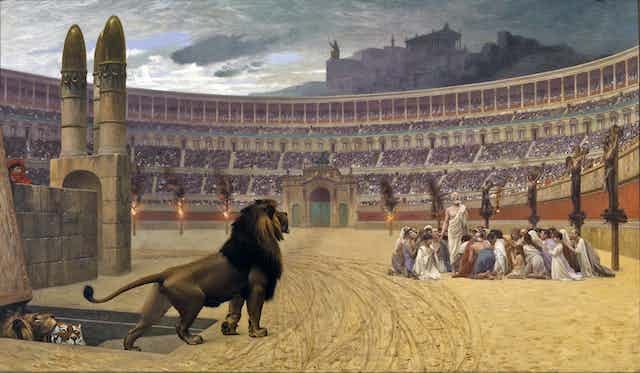Community Spotlight: Hugo Derave and Apex Legends Status
This is The Final Circle, a newsletter on an irregular publishing schedule
Welcome back to The Final Circle! In some respects, not much has changed since my last missive. The ALGS is in full swing again. There’s the same drama over Pro League roster hops, the same hopes and fears about the changes that the next season will bring; Hal still needs light ammo.
But the game’s fifth (!) birthday also comes at a time of big, scary changes for both Apex and the games industry. The esports winter is in the midst of a long, dark night, and nobody is really sure if the sun will ever come out again. Apex made lots of cash off the recent FF VII collab, but also got called out on the most recent EA earnings call for “not meeting expectations.” The broader gaming industry isn’t doing too hot at the moment either, at least for its employees. Let’s survey the damage:
More than 5,000 game developers have lost their jobs in 2024 so far, and that number seems to be climbing every day
Over at Digiday, Alex Lee wrote about the decreasing viability of careers in esports
TSM’s social media lead Dunc was let go
But it’s okay, because Verhulst stripped down for a sexy photoshoot
And at least someone has a job: community fixture Loopy, previously at OpTic, recently got a neat profile in his new role as the head coach and assistant director of Minnesota State’s esports program
A Data Mine for the People
Hugo Derave’s treasure trove of open tournament data
In these tumultuous times, I think it’s worth highlighting the community figures who are doing a ton behind the scenes to keep this scene going. In that spirit, I’ve dug up an old idea I had last year about the unsung heroes of Apex—people whose name you might not know, but whose work is important, interesting, or both.
That idea led me to Hugo Derave and his website, Apex Legends Status. Far more than the humble down detector its name suggests, the site and its associated hoard of open tournament data, Detailed Game Stats (DGS), comprise a great resource for the competitive scene.
Don’t believe me? Here’s what Sealion had to say when I asked him about using it: “Before DGS, I knew how to collect data on Apex using techniques that would not be readily known to those without industry experience…Now that DGS is available, we have one truth as long as TOs allow it. There isn't a knowledge barrier, anything that happens in-game is recorded and represented visually.”
Braydon Little, currently the coach for Native Gaming, agreed. “It is insanely valuable. I watch DGS playback even before I VOD review,” he said, mentioning that it’s helped in particular with information about the structure of endgames.
It’s a bit hard to imagine, but when I first talked to Derave about it, he insisted that the project started as a joke. The game was down so often that he thought it would be fun to make a status page for the servers. “I finished it in like a week, and never looked at it for a few months. One day I randomly opened Google analytics and went by accident on it, and saw there was actually a lot of daily traffic on it, so I decided to push it a bit further and... here we are!”
Derave, who lives in Lille, in northern France, works as a security analyst by day, but still finds the time for this ‘side project’, a website that, according to his LinkedIn page, handles more than 1.5 million unique users every month.
He believes that these kind of detailed stats can improve both individual players and the quality of the competition overall. Analysts “can study other teams’ pathing, performance, and find their weakness,” while reviewing games in DGS can function as “a faster alternative to VOD reviews” as well. It’s also helpful for tournament organizers, who can whip up scores, kills, damage and other stats in real time for viewers.
Derave is a passionate believer in equal access to information. His website is free (he has a Patreon to defray running costs), and a democratic ethos pervades his feelings on the subject. When I asked him about the launch of the idea, he reflected on the meaning of transparent data in a field where access to information can mean the difference between winning and losing: “Some pros were/are totally against DGS as it makes stats open to everyone, and also lowers the skill gap needed for analysts. I understand their point of view, but that's not mine. I've always been for easily available open stats… The only thing I'm sure about is that if I needed to wait for all pro feedback before releasing a feature, DGS would have never been released.”
The website continues to build out features. “It's not perfect yet,” he said, “but it's a step in the right direction.”
Do you know someone who should get a shout-out in the next Community Spotlight, whenever that might be? Let me know in the comments. And if by some unlucky chance you haven’t subscribed yet, click the big button below so that I can watch the number go up :)





"But it’s okay, because Verhulst stripped down for a sexy photoshoot" hahahah TRUE